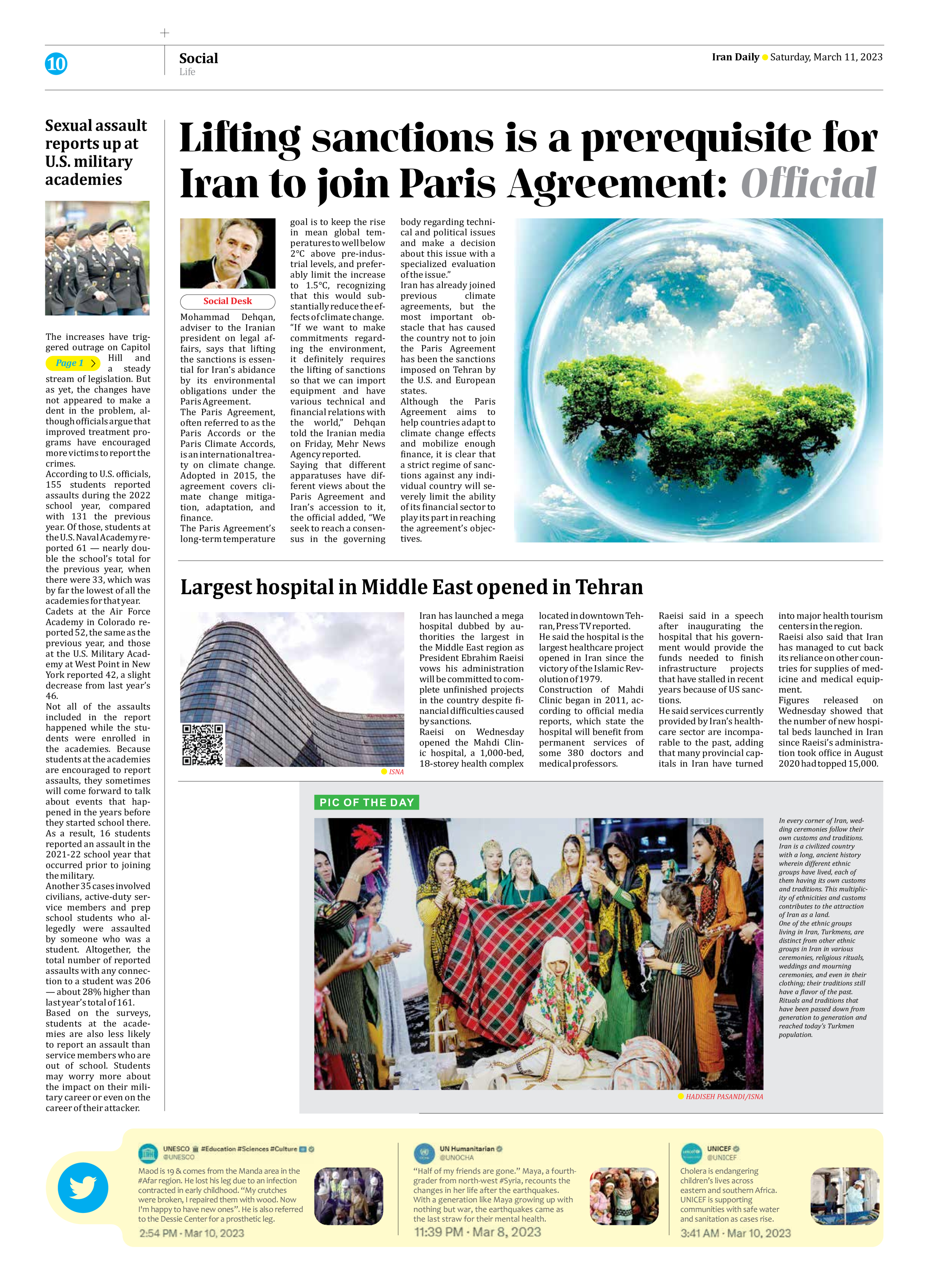
Lifting sanctions is a prerequisite for Iran to join Paris Agreement: Official
Mohammad Dehqan, adviser to the Iranian president on legal affairs, says that lifting the sanctions is essential for Iran’s abidance by its environmental obligations under the Paris Agreement.
The Paris Agreement, often referred to as the Paris Accords or the Paris Climate Accords, is an international treaty on climate change. Adopted in 2015, the agreement covers climate change mitigation, adaptation, and finance.
The Paris Agreement’s long-term temperature goal is to keep the rise in mean global temperatures to well below 2°C above pre-industrial levels, and preferably limit the increase to 1.5°C, recognizing that this would substantially reduce the effects of climate change.
“If we want to make commitments regarding the environment, it definitely requires the lifting of sanctions so that we can import equipment and have various technical and financial relations with the world,” Dehqan told the Iranian media on Friday, Mehr News Agency reported.
Saying that different apparatuses have different views about the Paris Agreement and Iran’s accession to it, the official added, “We seek to reach a consensus in the governing body regarding technical and political issues and make a decision about this issue with a specialized evaluation of the issue.”
Iran has already joined previous climate agreements, but the most important obstacle that has caused the country not to join the Paris Agreement has been the sanctions imposed on Tehran by the U.S. and European states.
Although the Paris Agreement aims to help countries adapt to climate change effects and mobilize enough finance, it is clear that a strict regime of sanctions against any individual country will severely limit the ability of its financial sector to play its part in reaching the agreement’s objectives.







